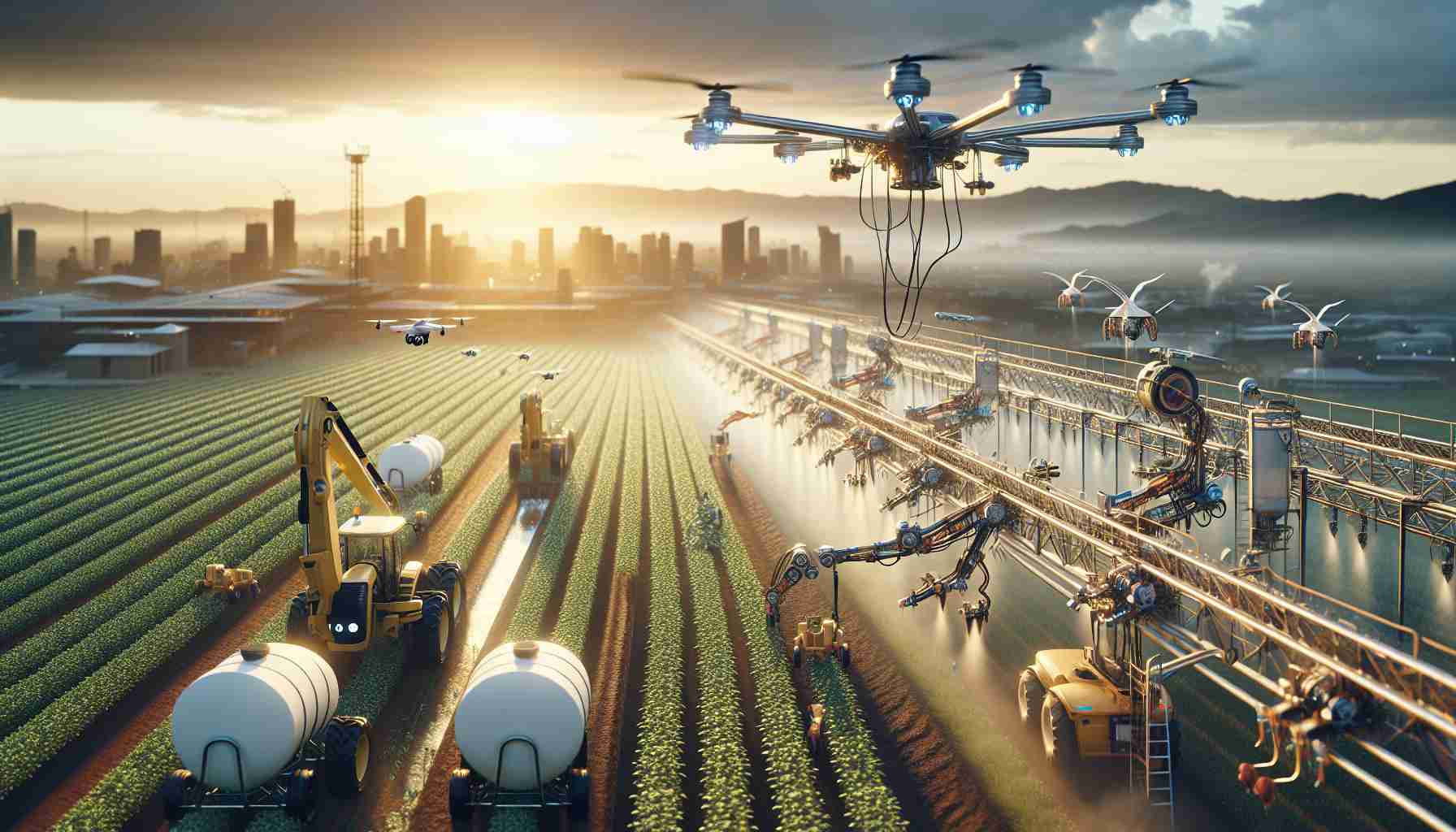Understanding Smart Farming
Smart farming integrates cutting-edge technology and data analytics to enhance agricultural practices. By employing these advanced methods, farmers aim to increase efficiency and promote sustainable production processes. This innovative approach drastically transforms traditional farming techniques, leading to improved crop yields while minimizing environmental impact.
The Role of Technology
Drones, sensors, and AI-driven software are pivotal in the world of smart farming. Drones offer aerial views of fields, allowing farmers to monitor crop health from above. Meanwhile, sensors placed in the soil can provide real-time data on moisture levels, enabling precise irrigation practices. This data-driven approach helps farmers make informed decisions, reducing waste and conserving resources.
Sustainable Practices at the Forefront
Sustainability is a cornerstone of smart farming. By optimizing inputs such as water, fertilizers, and pesticides, farmers not only boost productivity but also protect the ecosystem. Techniques like precision agriculture utilize GPS and IoT devices to tailor farming methods to specific conditions of each plot, ensuring that every drop of water and every ounce of fertilizer is used efficiently.
As the agricultural sector continues to evolve, embracing smart farming principles could mean healthier crops, improved profitability, and a significantly reduced ecological footprint. The future of farming is here, and it’s smarter than ever!
Revolutionizing Agriculture: The Future of Smart Farming
## Understanding Smart Farming
Smart farming represents a groundbreaking shift in agricultural practices, driven by the integration of advanced technology and data analytics. By leveraging these innovations, farmers seek to enhance operational efficiency and foster sustainable production methods. This transformative approach not only boost crop yields but also minimizes environmental impacts, setting the stage for a sustainable agricultural future.
## The Role of Technology
One of the defining features of smart farming is the deployment of various technologies that significantly enhance farming capabilities.
– **Drones**: These flying machines provide comprehensive aerial imagery, enabling farmers to assess crop health, identify disease outbreaks, and evaluate irrigation practices from a bird’s-eye view.
– **Sensors**: Ground sensors monitor essential parameters such as soil moisture, temperature, and nutrient levels. This precise data collection allows for targeted irrigation and fertilization, leading to optimized resource use.
– **Artificial Intelligence**: AI algorithms aid in analyzing vast data sets to determine the best farming practices, predict weather patterns, and even suggest crop rotations that maximize yield based on historical data.
Beyond these technologies, **Robotics** are increasingly becoming part of the equation, assisting in tasks such as planting, harvesting, and weed control, thereby reducing labor costs and improving precision.
## Sustainable Practices at the Forefront
Sustainability remains a key focus within smart farming strategies. By maximizing efficiency in input usage—like water, fertilizers, and pesticides—farmers not only increase productivity but also protect vital ecosystems. Here are some specific initiatives:
– **Precision Agriculture**: Utilizing GPS and IoT devices, precision agriculture allows farmers to cultivate fields with tailored methods based on the unique conditions of each section. This ensures efficient use of resources and minimizes waste, playing a significant role in promoting sustainability.
– **Agroecology and Organic Farming**: The marriage of smart technology with eco-friendly practices is creating a new standard in farming, encouraging practices that maintain soil health and biodiversity.
## Use Cases and Market Adoption
Smart farming is being adopted across various crops and regions, demonstrating its versatility. For instance:
– **Fruit Cultivation**: Sensors can alert farmers to the optimal harvesting time based on quality metrics, thus ensuring peak freshness and quality.
– **Livestock Management**: IoT devices help monitor animal health and location, optimizing husbandry practices and enabling timely interventions for care.
The market for smart farming technology is rapidly growing. A recent report indicates that the smart agriculture market is expected to exceed $20 billion by 2025, driven by the increasing need for efficient food production systems and advancements in technology.
## Limitations and Challenges
Despite its numerous advantages, smart farming is not without challenges:
– **High Initial Costs**: Farmers may face significant upfront investments in technology and infrastructure.
– **Data Privacy Concerns**: The use of data analytics raises questions about data ownership and privacy, particularly when it comes to sensitive operational information.
– **Technological Barriers**: Not all farmers have equal access or familiarity with advanced technologies, which can lead to disparities in adoption.
## Innovations and Future Trends
Looking ahead, several trends are poised to shape the future of smart farming:
– **Increased Automation**: The advent of autonomous vehicles and robotics in agriculture will continue to grow, leading to reduced labor needs and increased operational efficiency.
– **AI and Big Data Integration**: Enhanced data analytics capabilities will provide deeper insights into farming practices, further refining efficiency and yield.
– **Sustainable Tech Solutions**: Innovations aimed at enhancing environmental sustainability—such as biopesticides and innovative irrigation techniques—will gain popularity.
## Conclusion
As the agricultural sector embraces smart farming principles, it stands to benefit from healthier crops, improved profitability, and a significantly reduced ecological footprint. The combination of advanced technology and sustainable practices marks a new era in farming, ensuring that the future of agriculture is not just smarter, but also more responsible and ecologically friendly. For more information on the ongoing developments in smart farming, check out Smart Farming Innovations.
